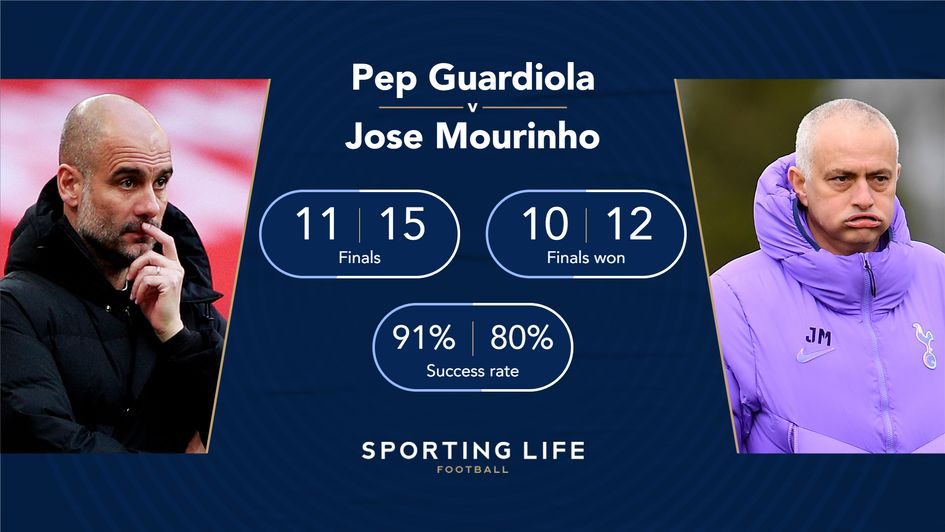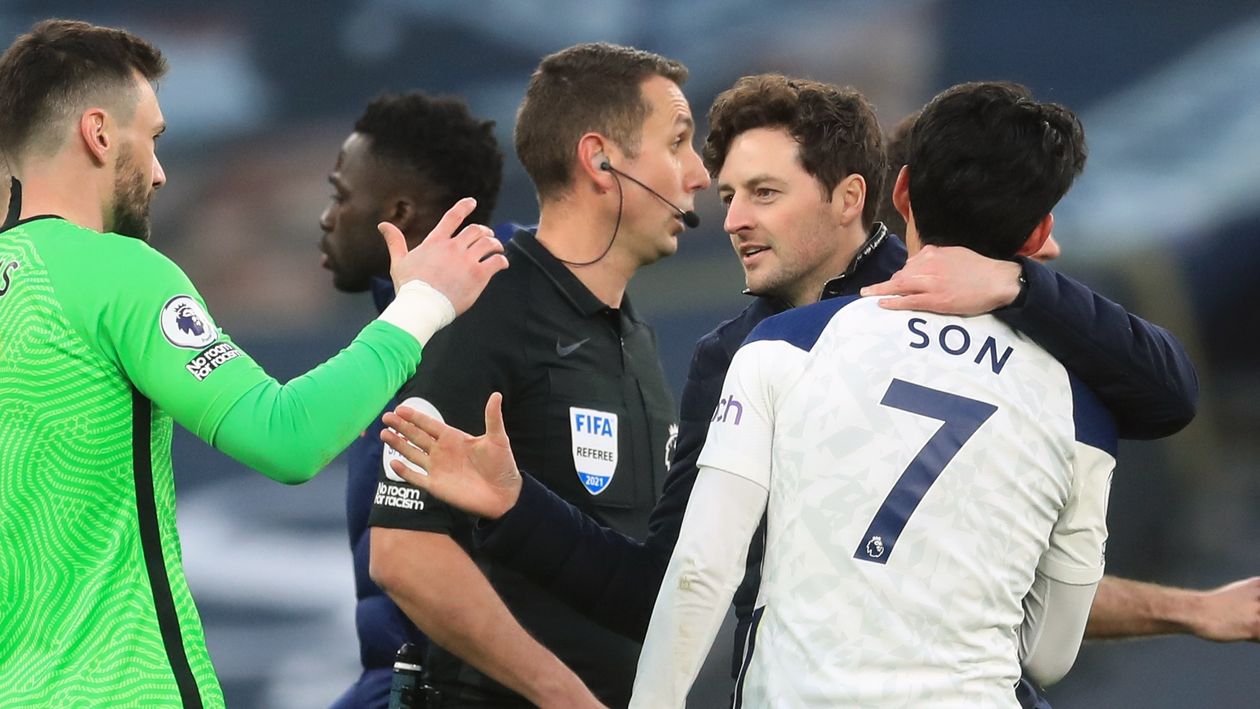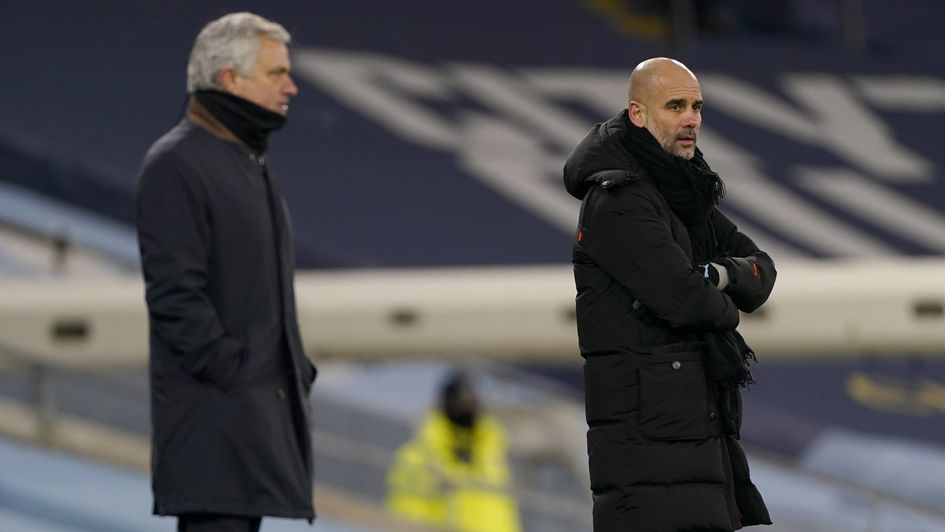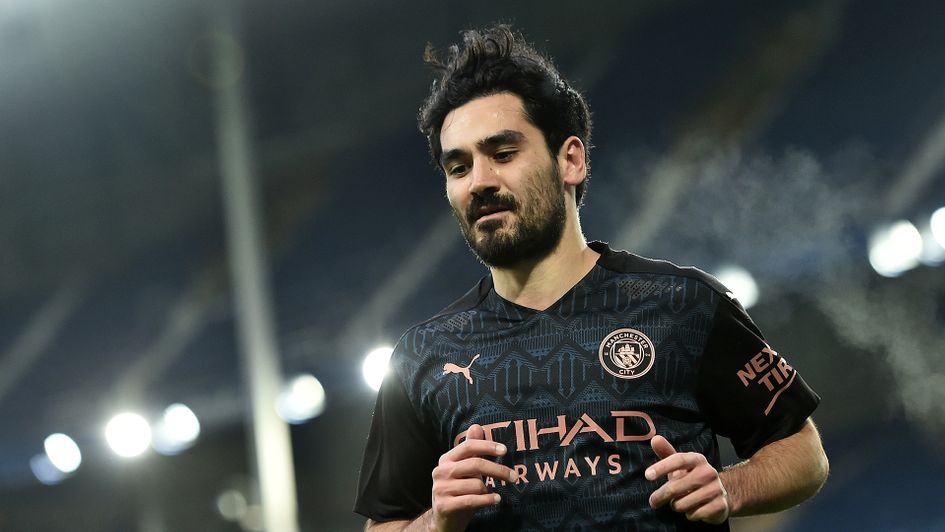An epic rivalry may have suddenly disappeared from the footballing world.
Exit Jose Mourinho, the only European Super League manager ever to be sacked, six days before the final of a competition he helped reinvent, six before the chance to prove his relevance by beating his nemesis.
Pep Guardiola and Mourinho were supposed to be the irresistible object and the immovable force when both pitched up in England in 2016. It transpired they were irresistible object and declining force.
Now, they are the irresistible object and the removed force.
Denied Guardiola v Mourinho
Mourinho’s sacking removed the chance of a sequel in Sunday’s Carabao Cup final and a showdown in an arena where he still has a remarkable record. As a manager, Guardiola has been in 11 finals and won 10.
The lone loss? To Mourinho’s Real Madrid in the 2011 Copa del Rey. Mourinho’s own record is almost as impressive: 12 wins and only three defeats in 15 finals. It would have pitted a 91 percent win rate against an 80 percent success rate.

If it made them the definition of big-game managers, they have been big-competition coaches. They helped define the Champions League, winning it four times in eight seasons between 2004 and 2011.
Yet in the subsequent decade, they have had a rather different status: with no subsequent Champions League win, but cementing their places as two of the League Cup legends. They have dominated the competition and helped reinvent it.
Since each moved to Manchester in 2016, no one else has won the League Cup. With four victories, Mourinho is the joint most successful manager in its history; if Guardiola wins on Sunday, he will join his old enemy, plus Brian Clough and Sir Alex Ferguson. He will become the first to win it in four successive seasons.
He has only been knocked out of the League Cup once: by Mourinho in 2016. The Portuguese has never gone out of the competition in regulation time. His five exits have all come in extra time (two) or on penalties (three).
It makes them the opposites of managers like Arsene Wenger, Jurgen Klopp and Mauricio Pochettino, who have no League Cups between them; each reached at least one final, but have different records in them than Mourinho and Guardiola.
Pep and Jose's impact on the competition
Mourinho arrived in England in 2004, figured the League Cup was the most winnable tournament, something he could package off before the business end of the season, and targeted it.
Guardiola has a similar approach; they have seven League Cups to just two FA Cups. The post-2004 Ferguson had a comparable record: three League Cups, no FA Cups.
Since 2004-05, there have been 16 League Cup finals. Thirteen have been won by Chelsea, the Manchester clubs or the pre-Klopp Liverpool, another by Tottenham. It only left two for the rest, both in years (2011 and 2013) when neither Mourinho nor Guardiola was in England.
Compare it with the previous 20 years and there were 13 different winners, including Norwich, Oxford, Luton, Nottingham Forest, Sheffield Wednesday, Leicester, Blackburn and Middlesbrough.
That change was in part due to the evolution of the game, the concentration of power at the top. In part, it was Mourinho and Guardiola seeking validation in silverware; Spurs and Manchester City were probably more concerned with Champions League qualification.
There is a paradox in the League Cup: it is won almost exclusively by the elite, and yet it scarcely seems to contribute to a description of them.
Will Tottenham win another trophy?
Tottenham’s last trophy famously came in 2008, which did not stop them becoming founder members of the ill-fated European Super League. Nor did continental trophies act as a deciding factor: Spurs’ last one came in 1984, City’s only one in 1970.
Maybe the managers helped. Each has won more than his club (or, in Mourinho’s case, his former club). But if they were status symbols, that status stemmed in part from silverware, which in turn was a consequence of their records in the League Cup.

Including penalty shootout triumphs, City have won 21 of their last 22 games, losing only last season’s second leg against Manchester United, when they still progressed on aggregate, scoring 52 goals and conceding just 13. They have progressed in 19 consecutive ties.
Their League Cup wins are sometimes only described in the context of something bigger – 2019’s unprecedented domestic treble, this year’s potential quadruple, until Chelsea turfed them out of the FA Cup.
Their 2018 triumph was the biggest final win against top-flight opponents (3-0 versus Arsenal) since 2006 but feels a postscript to their 100-point haul in the Premier League. Perhaps their most significant League Cup win remains the 1976 victory, because it was their last major trophy for 35 years.
A second Wembley defeat on successive weekends would contribute to a broader narrative about this season for City; for Tottenham, it would give the 29-year-old caretaker Ryan Mason a unique place in their history.
And yet this season feels about the Champions League for City and Champions League qualification for Tottenham. And as an expanded Champions League, let alone a European Super League, could kill off the League Cup, it could leave Guardiola with forever the greatest record in the competition’s history.







